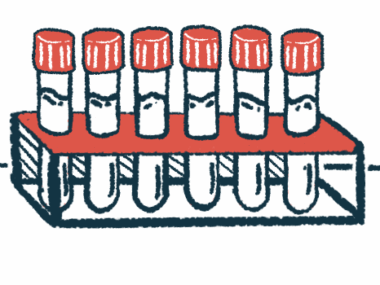An Invitation to Uplift the Rarer Than Rare
Written by |

I always knew I was rare. From the motorized wheelchair to the feeding tube, there’s no mistaking me for normal. No matter how hard I try to blend in, I always stand out, to the point where I’ve pretty much given up. Why pretend to be something I’m not? Why waste energy on achieving the impossible when I can celebrate the exceptional instead?
Every year on Feb. 28, the world celebrates Rare Disease Day (RDD). I’ve written several columns on the subject, as have my fellow SMA patients, all of which are worth the read. (I’m admittedly biased, but that’s neither here nor there.)
This year, though, I’d like to take a different approach to RDD and explore the ways in which many of us are common.
Folks with chronic illness often grow up with a sense of specialness. This is especially true for those of us who have “beaten the odds.” Our diseases are unusual; our lives are unique. Many of us should not be alive, and it shows in our communities, our loyalty to and kinship with disabled folks.
I’ve written previously about my friendship with my fellow columnist Sherry Toh. Over the years, Sherry has enriched my life in countless ways — pushing me, encouraging me, and most importantly, calling me out on my internalized ableism. I’ve considered myself a disability advocate since 2016, but it’s only since meeting Sherry that I’ve come to understand the complexities surrounding the spectrum of ability. She has played a huge role in my development, both personally and professionally.
Sherry is unlike most SMA patients in that she lives in Singapore. Her race and ethnicity, cultural background, and sexual orientation all influence Sherry’s perspective and impact her ability to engage with the community at large.
Her current residence doesn’t just affect her access to disease-modifying therapies (DMTs). It prevents her from taking advantage of a variety of incredible offers, such as Cure SMA’s virtual therapy programs. It affects her ability to participate in community events, from annual conferences to RDD panels.
Meanwhile, folks in the U.S. benefit from them, often without a second thought. That’s not to say we don’t have our own obstacles to overcome — anyone with a rare disease knows how difficult it is to live as a disabled person in an overwhelmingly ableist world. But the fact remains that many of us live with a kind of invisible privilege.
When Evrysdi (risdiplam) was approved, we celebrated — and rightfully so! But how many of us stopped to acknowledge that DMTs are overwhelmingly unattainable for people around the world?
Prior to the pandemic, how many events were inaccessible to folks simply because of where they lived?
When we think of advocacy organizations, how many of them focus on the Western world? Do any of them acknowledge the global population?
There are, of course, logistical hurdles to acknowledge, many of which I haven’t even considered. This isn’t an indictment of how things are done but rather an invitation to dream. How can we include those among us who are rarer than rare? What does that kind of radical inclusion look like, both online and in person? How do we use what little privilege we have to uplift those who are barred from the advocacy spotlight?
We begin with the voices that are too often silenced. Don’t just listen to people in our communities — amplify their stories. Work with them to ensure their needs are being met. For that matter, inquire about their needs. Don’t assume that patients in the U.S. are stand-ins for patients around the world.
I would be remiss to end this column with anything but a disclaimer. I am not perfect. None of us are! Allyship is complicated, intense, and for lack of a better term, largely uncharted territory.
All we can do is try — and try we must.
Thanks for reading! You can follow me on Twitter and Instagram, subscribe to my newsletter, or support me on Ko-fi.
Note: SMA News Today is strictly a news and information website about the disease. It does not provide medical advice, diagnosis, or treatment. This content is not intended to be a substitute for professional medical advice, diagnosis, or treatment. Always seek the advice of your physician or other qualified health provider with any questions you may have regarding a medical condition. Never disregard professional medical advice or delay in seeking it because of something you have read on this website. The opinions expressed in this column are not those of SMA News Today or its parent company, Bionews, and are intended to spark discussion about issues pertaining to spinal muscular atrophy.








Leave a comment
Fill in the required fields to post. Your email address will not be published.